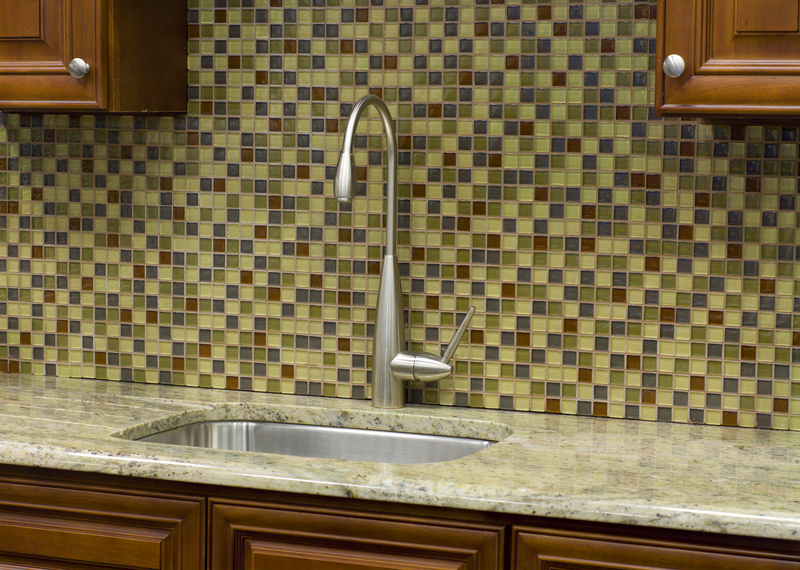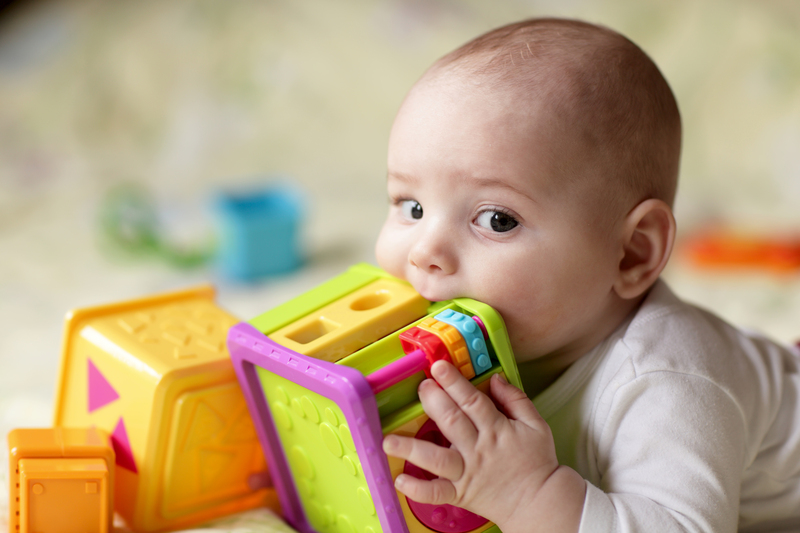Your Comprehensive Guide to Jewelry Cleaning Mastery
Posted on 23/08/2025
Your Comprehensive Guide to Jewelry Cleaning Mastery
Jewelry is more than just an accessory--it's an expression of your personality, a celebration of precious moments, and oftentimes, a valuable investment. To keep your treasured pieces shining for years, careful upkeep is essential. Welcome to your comprehensive guide to jewelry cleaning mastery: a complete resource for learning how to clean, care for, and maintain every type of jewelry. Whether your collection comprises cherished family heirlooms or trendy costume pieces, this detailed guide will empower you to restore brilliance, prevent damage, and keep your jewelry radiant at all times.
Why Regular Jewelry Cleaning Matters
Over time, jewelry accumulates dirt, oil, and grime from daily wear--dulling its luster and potentially damaging delicate materials. Regular care is crucial for several reasons:
- Preservation of Beauty: Clean jewelry sparkles brilliantly and retains its visual appeal.
- Increased Longevity: Well-maintained pieces are less likely to suffer from tarnish, corrosion, or gemstone loosening.
- Good Hygiene: Removing dirt and bacteria helps prevent skin irritation and infections.
- Value Retention: Particularly important for investment and heirloom pieces, pristine condition supports lasting value.
Mastering the art of jewelry cleaning means understanding your pieces and customizing care accordingly. Let's start with the basics before diving into advanced techniques and expert tips.

Understanding Jewelry Materials: The Foundation of Safe Cleaning
Not all jewelry is created equal. Materials vary in their sensitivities, so your first step is identifying what your jewelry is made of:
Precious Metals
- Gold: Soft and prone to scratches, especially in higher karats.
- Silver: Vulnerable to tarnishing caused by exposure to air and moisture.
- Platinum: Extremely durable but susceptible to surface dullness over time.
- Stainless Steel and Titanium: Highly resistant to corrosion and wear, but still benefit from regular cleaning.
Gemstones
- Diamonds: Exceptionally hard, but oils and dirt can cloud their brilliance.
- Emeralds, Opals, Pearls: Porous or soft; must be cleaned gently to avoid damage.
- Sapphires, Rubies, Amethyst: Durable but still require careful handling.
Other Materials
- Costume Jewelry: Often consists of plated metals and glued stones, which can be sensitive to liquids and harsh chemicals.
- Enamel, Resin, Leather: Each material has unique cleaning requirements--always check if cleaning is recommended before proceeding.
Essential Tools for Jewelry Cleaning
Gathering the right tools ensures effective yet gentle cleaning. Here's what you'll need for home maintenance:
- Soft-bristled toothbrush: Perfect for scrubbing intricate settings.
- Lint-free cloth or microfiber towel: Prevents scratches while drying and polishing.
- Mild dish soap: Non-abrasive and safe for most jewelry.
- Warm water: Helps to dissolve grime without damaging bearings.
- Bowl: For soaking jewelry pieces safely.
- Wooden toothpick: Useful for removing stubborn dirt from small crevices.
- Specialized cleaning solutions (optional): Available for specific metals or gemstones. Always follow product instructions.
Tip: Keep all supplies dedicated to jewelry cleaning to minimize accidental transfer of harsh substances.
Step-by-Step Jewelry Cleaning Techniques
1. How to Clean Gold Jewelry
- Fill a bowl with warm (not hot) water and add a drop of mild dish soap.
- Soak your gold pieces for 15-20 minutes to loosen dirt and oils.
- Gently scrub with a soft toothbrush, paying special attention to prongs, links, and undersides.
- Rinse thoroughly under lukewarm running water.
- Pat dry with a lint-free cloth. Avoid using paper towels, which may scratch gold surfaces.
For extra shine, buff with a jewelry polishing cloth.
2. How to Clean Silver Jewelry
Silver is highly prone to tarnish, but regular maintenance keeps it gleaming:
- Mix mild dish soap with warm water in a bowl.
- Soak the jewelry for 10-15 minutes.
- For stubborn tarnish, create a paste using baking soda and water; gently rub the paste onto jewelry with your fingers or a soft cloth.
- Rinse, then dry thoroughly.
- Polish with a special silver cleaning cloth for mirror finish.
Avoid chemical dips for silver pieces that contain gemstones or detailed designs, as these can be damaged.
3. Effective Cleaning for Gemstone Jewelry
Some gemstones require special attention. Here's how to care for the most common stones:
- Diamonds, Sapphires, Rubies: Safe for mild soap and warm water, followed by a soft brush and thorough rinsing.
- Emeralds, Opals, Pearls: These delicate stones should never be soaked. Wipe gently with a damp, soft cloth. Avoid ultrasonic cleaners and all harsh chemicals.
- Porous stones (e.g., turquoise, lapis lazuli): Similar care as for delicate stones--never submerge for prolonged periods and avoid exposure to acids or alcohol-based solutions.
Always check whether your gemstone has specific cleaning guidelines before beginning.
4. Proper Maintenance of Costume Jewelry
Costume jewelry often uses glue or plating, making it susceptible to water damage:
- Wipe with a dry or very slightly damp microfiber cloth after each use.
- Do not submerge or soak.
- If necessary, use a cotton swab moistened with water to gently remove surface stains, immediately drying the area afterwards.
- Store in a cool, dry place to prevent tarnish and fading.
Advanced Techniques: Mastering the Art of Deep Cleaning
When and How to Use Ultrasonic Cleaners
Ultrasonic cleaners are available for home use and use high-frequency sound waves to dislodge dirt particles. However, they are not suitable for all types of jewelry:
- Safe for: Hard stones such as diamonds, sapphires, and rubies set in precious metals, provided there's no damage or loose stones.
- Not safe for: Soft, porous, or treated stones (pearls, opals, emeralds), or delicate costume pieces.
Always consult your jeweler before using an ultrasonic cleaner, and strictly follow device guidelines.
Professional Steam Cleaning
Steam cleaning is highly effective but best left to professionals. It's used primarily for diamond jewelry and can loosen or damage sensitive gemstones and adhesives if used inappropriately.
Homemade Jewelry Cleaners: What's Safe and What to Avoid
Various DIY solutions are touted across the internet, but not all are recommended:
- Baking soda and water paste: Generally safe for unadorned precious metals, not for soft stones or plated jewelry.
- Vinegar and water: Effective for pure silver but can be too harsh for gemstones and intricate designs.
- Toothpaste: Never use toothpaste--it can scratch metals and stones.
- Window cleaners & household chemicals: Avoid at all costs. These chemicals are far too harsh and will quickly degrade your jewelry's finish.
When in doubt, stick to mild soap and water.
How to Maintain and Store Jewelry for Lasting Shine
Daily habits play a significant role in the longevity of your collection. In addition to cleaning, adopt these smart handling and storage practices:
- Put jewelry on last: Apply perfumes, lotions, and hairsprays before accessorizing to minimize contact with chemicals.
- Remove jewelry for household chores, exercise, and swimming: Chlorine and sweat can quickly damage both metal and stones.
- Regularly inspect settings and clasps: Early detection of loose settings prevents loss and further damage.
- Store properly: Use soft-lined boxes or cloth pouches. Store pieces separately to prevent scratches and tangles; consider anti-tarnish slips for silver.
Special Storage Tips for Different Jewelry Types
- Pearls: Store flat in a soft pouch--never hang, as thread can stretch.
- Silver: Use anti-tarnish strips or keep in a ziplock bag with air removed.
- Costume Jewelry: Keep dry and away from direct sunlight to prevent discoloration.
Frequently Asked Questions: Mastering Jewelry Cleaning
How Often Should I Clean My Jewelry?
For items worn daily (engagement rings, wedding bands), a gentle cleaning once a week keeps dirt at bay. Less frequently worn pieces can be cleaned monthly or before special occasions.
Is It Safe to Use Ultrasonic Cleaners on All Jewelry?
No. Always verify that your jewelry can withstand ultrasonic cleaning--avoid delicate, porous, or glued gemstones.
What Should I Do If My Jewelry Has Been Damaged by Improper Cleaning?
Stop wearing it immediately and consult a professional jeweler for repair or restoration. Avoid home remedies that could worsen the issue.
How Can I Prevent Tarnish on Silver Jewelry?
Regular polishing, limiting moisture exposure, and storing in anti-tarnish pouches are effective strategies.
Can I Clean Jewelry With Baking Soda?
Pure baking soda is safe for most precious metals but abrasive on soft stones and plated items. Always test a small area first.
Expert Jewelry Cleaning Tips and Tricks
- Set a routine: Make jewelry cleaning part of your monthly or bi-weekly maintenance routine.
- Schedule professional inspections: An annual checkup ensures your stones remain secure and damage-free.
- Invest in a jewelry cleaning kit: Many jewelers offer specialized, safe kits that are formulated for various types.
- Travel smart: Use travel cases with divided, padded compartments to prevent damage on the go.

When to Seek Professional Jewelry Cleaning
Some jewelry is best left in the hands of experienced professionals. Seek expert cleaning and maintenance for:
- Antique or heirloom pieces.
- Items with unclear or delicate materials.
- Stubborn buildup or stains that home care can't resolve.
- Repairs, loose gemstones, or broken clasps.
Conclusion: Become a Master of Jewelry Cleaning
Embracing jewelry cleaning mastery isn't just about restoring brilliance--it's about protecting memories, preserving value, and expressing your personal style with confidence. With a balanced mix of gentle cleaning, smart maintenance, and occasional professional care, your treasured jewels can shimmer for a lifetime. Bookmark this guide, reference it often, and share your jewelry cleaning knowledge with fellow enthusiasts--because every piece deserves to shine.
Ready to showcase your most dazzling self? Begin your journey to jewelry cleaning mastery today!




